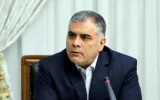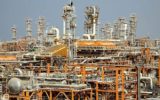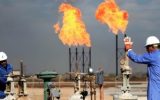
The deputy of oil and gas projects management in the engineering and construction department of the National Iranian South Oilfields Company announced the successful implementation of two significant projects in the operational areas of Gachsaran and Shaddad, aimed at environmental protection, reducing pollution, and creating added economic value.

Gas consumption in the residential, commercial, and industrial sectors on January 11th decreased compared to the previous day, reaching 590 million cubic meters.

The CEO of Pars Oil and Gas Company announced a more than doubling of the number of drilling rigs deployed in the South Pars joint field and stated: "With the expansion of the drilling fleet and the increase in the number of rigs to 10, the trend of increasing the country's gas extraction capacity has been significantly strengthened."

The Minister of Petroleum stated that in order to supply gas to power plants, we have delivered a cumulative 3.5 billion cubic meters of gas to power plants since the beginning of this year, and added: "Also, liquid fuel has been supplied to power plants in appropriate and stable volumes so that our dear compatriots do not face any problems or shortages in terms of electricity supply and their electricity needs are fully provided."

Ali Moshiri, former chief executive of Latin American operations for the US oil giant Chevron, told the Financial Times in an interview that he is in talks with investors to raise $2 billion to invest in opportunities in Venezuela.

The CEO of the National Iranian Drilling Company announced the completion of 101 oil and gas wells this year and said: "The drilling area since the beginning of this year has reached 103,456 meters."

The head of the central repair and manufacturing workshop of the South Pars gas complex announced the repair, manufacturing and localization of more than 2,625 parts and key equipment in 9 months of this year and said: The process of localization of equipment has grown by more than 15% compared to the same period last year.

The CEO of Ariassol Polymer Company said: The implementation of the burner gas collection plan prevents the annual waste of 762 tons of ethylene and ethane mixture, and has saved about 408,000 dollars in total.

Gas consumption in the domestic, commercial, and industrial sectors, along with the stability of the cold weather, was recorded at 621 million cubic meters on January 3.

The manager of the 12th South Pars Refinery emphasized the priority of stable and maximum gas production in the cold season and said: This refinery has succeeded in setting new records in the production of gas and by-products by relying on the power of domestic experts, full support of Iranian manufacturers and strict compliance with HSE requirements.










